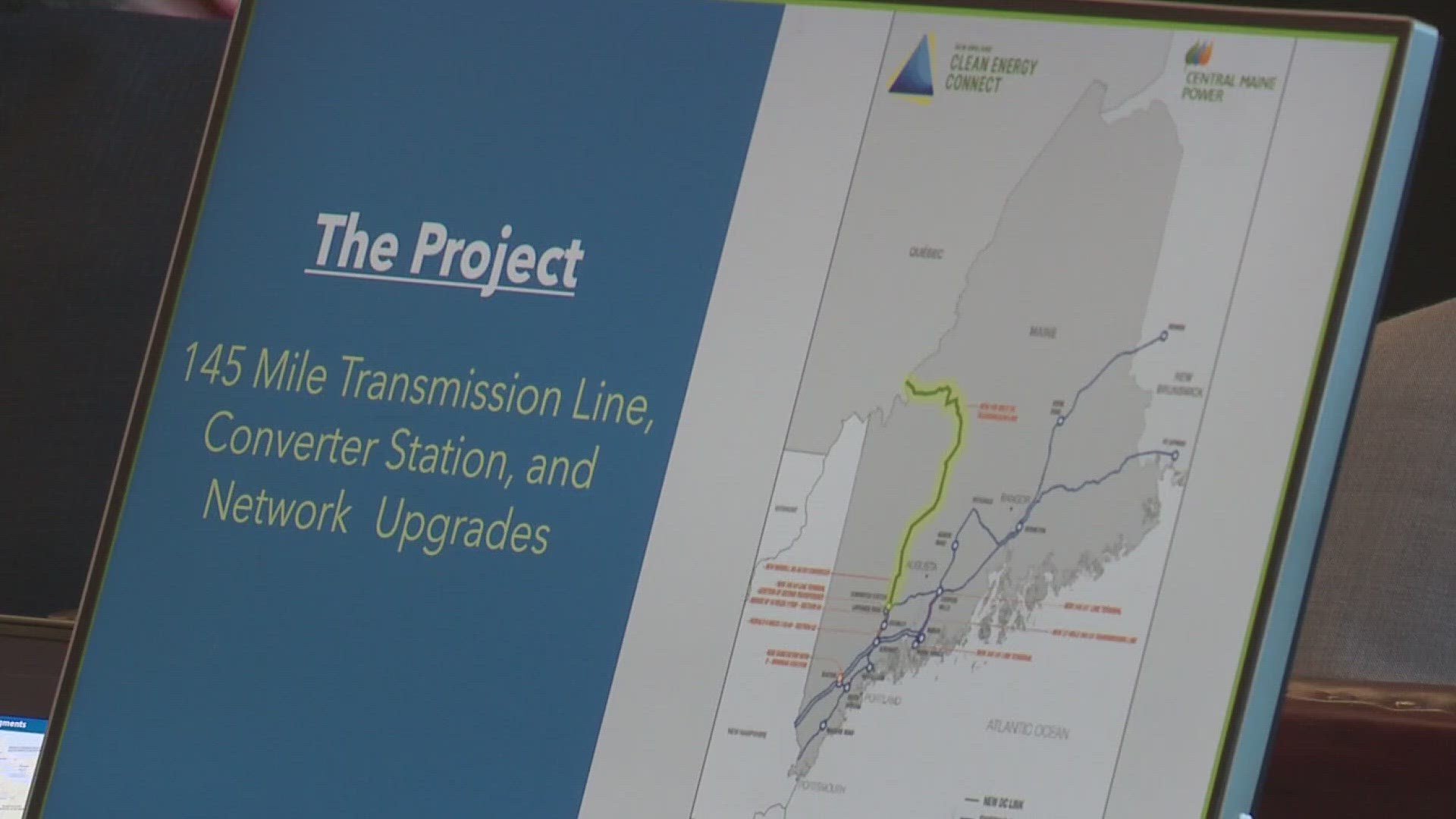PORTLAND, Maine — The future of a controversial power corridor in western Maine could soon be decided by a Maine jury.
On Monday, jury selection, and opening statements took place in the case 'NECEC Transmission LLC v. Bureau of Parks and Lands,' which looks to determine whether "vested rights" were established in the controversial project.
The New England Clean Energy Connect project, known by opponents as the CMP Corridor, has been debated for years in Maine and has been the subject of numerous legal challenges.
It was also the subject of a November 2021 referendum, in which Mainers voted to block the project from continuing.
Avangrid, the parent company of Central Maine Power, filed a lawsuit challenging that law shortly after, and attorneys representing the project said in the courtroom on Monday, that the retroactive law should not apply to the project because it had established vested rights.
Vested rights, if established, would allow the project to continue due to receiving proper permitting, spending enough money, and building enough of the project to grant them the right to continue.
"Through a retroactive law, passed almost 10 months after construction lawfully began pursuant to valid permits, and after hundreds of millions of dollars had been spent to build it according to a schedule created in 2018," NECEC and Avangrid attorney John Aromando said.
Opponents of the project, including an attorney from the Maine Attorney General's Office, argue the NECEC project did not establish vested rights, and that work was expedited in an effort to establish vested rights, and not have any future laws apply to block the project.
"A person or a company only gets to claim vested rights when the harm that they're claiming to suffer, that they spent money on construction, is done in good faith. If Avangrid and NECEC expedited their constriction schedule to start in Jan and Feb of 2021 instead of May 2021, thinking that they could get some poles in the air to prevent the referendum from ever being applied to them, that is not good faith," John Bolton of the Maine Office of the Attorney General said during opening statements Monday.
Over the course of the trial, NECEC proponents will look to argue that they did establish vested rights in its work to complete the corridor, while opponents look to prove that the NECEC did not do so in good faith, and altered construction schedules in an effort to establish vested rights and block the referendum from applying to the project.
The trial is expected to last into next week, with closing arguments slated for April 19.

